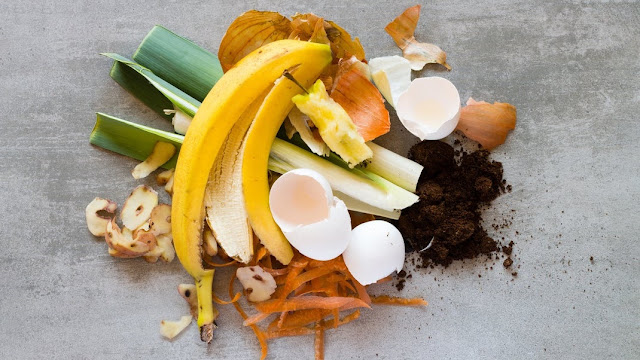Put Food Scraps to Work in Your Garden — No Composting Required
You know composting is fantastic for both cutting back on waste and growing a thriving garden. But let’s be honest: composting is work. You’ve got to learn the process in order to master it, and it requires an investment of time, effort and regular maintenance. If you want to do more with your food scraps but aren’t sure if you’re ready to dive into composting just yet, we’ve got the perfect solution.
You can take your food scraps and put them to use in your garden without composting. That’s right – you can take the cuttings, peels and roots left behind on your cutting board and deposit them directly into the soil of your garden. Find out how to turn food scraps into plant-boosting soil additives or pest-fighting protection throughout your garden, all without any waiting required.
Bury banana peels for extra nutrients
Bananas are a great source of potassium – just one banana contains approximately 422 milligrams or 9 percent of your daily recommended total. And while that potassium is great for your own nutritional needs, it’s also fantastic for plants.
The potassium present in a banana’s peels can help your plants grow healthy and strong. This nutrient helps plants take in and transfer water at a cellular level, grow healthy roots, fight diseases and produce more fruit and blossoms.
So, you can take your empty banana peel out into your backyard and “feed it” to your plants. All you have to do is bury the peel in the soil (and make sure it’s a couple inches deep to prevent bugs). From there, the banana peel will break down, releasing its potassium right into the soil for plants to pick up.
Use crushed eggshells as a fertilizer
Here’s a food waste “recycling” tip you’ve likely heard before. You can crush up eggshells and sprinkle them throughout your garden. This common idea is so well-known because it’s highly effective – and because it’s a great way to take eggshells from waste to key ingredient.
Eggshells are made up of calcium carbonate. That’s the very same calcium that builds strong bones and muscle in humans, and plants can also benefit from it. An extra dose of calcium can help prevent blossom-end rot, a plant problem that’s directly tied to a calcium deficiency. Specifically, plants like tomatoes, peppers, broccoli and spinach can get a boost from these calcium-packed shells.
Instead of throwing away your eggshells, crush them up and carry them out to your garden. You can mix them into the soil of flower beds, fruit and veggie plants or even the holes into which you’re planting seedlings. You can add as much eggshell as you’d like.
And there’s an added bonus to putting eggshells into soil: The shells also help keep slimy pests like snails and slugs off your plants. If you’re facing an invasion from these critters, you can also sprinkle crumbled eggshells on top of the soil.
Keep pests away with orange peels
If you’re frustrated every time you head out into your yard and discover bugs have been munching on your plants, it’s time to turn to your fruit bowl.
Instead of dropping orange peels right into the trash, you can use them to fight off pests that are interested in snacking on your flowers, food and more. Orange peels are a natural pest deterrent, and they’re so effective that they’re used as an ingredient in many bug repellent sprays. The peels work well because most insects, including fleas, fire ants, mosquitoes, flies and roaches, dislike their fragrance.
To create an anti-pest barrier in your garden, all you have to do is scatter pieces of orange peels around the base of your plants. You can also bury the peel just below the surface of the soil or incorporate shredded peels into the soil in areas where aphids are appearing.
Increase foliage with coffee grounds
If you’re hoping to grow plants that are lush with foliage, look to your coffeemaker. Your leftover coffee grounds can go from trash to fertilizer in your garden.
Coffee grounds are a composting favorite because they add nitrogen into the mix, a key ingredient for the waste-to-compost process. And that nitrogen is also highly beneficial even if you aren’t turning the grounds into traditional compost material. When you infuse extra nitrogen into the soil, plants can thrive and see increased healthy foliage.
Just mix your coffee grounds into the soil throughout your flower beds or planters. If you want to keep pests at bay, you can also sprinkle the grounds on top of the soil around the edges of your garden. This works to stop slugs, rabbits, squirrels and neighborhood cats from getting at your plants.
Just be careful not to put all of your coffee grounds into your garden’s soil. Adding too many grounds, or using them too frequently, can add a bit too much caffeine. That, in turn, can actually stunt plants’ growth. To err on the side of safety, stick with a small amount every now and then.
Grow a better garden by feeding your plants your food scraps! Once you’ve mastered these tips, you can always give composting a try for waste reduction and a highly nutritious gardening mix, or even put the Bokashi method, a fermented form of composting, a try when you’re more experienced. With tips like these, your at-home herb garden will thrive.

